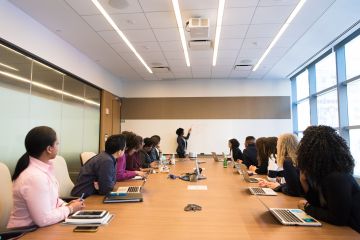Why safe spaces are essential for marginalised groups
Differentiation on the basis of skin colour is never permissible. There is not the slightest doubt about that.
The controversy surrounding an activity organised by the Imazi.Reine collective is unfortunate because it brings the concept of a 'safe space' into disrepute. A safe space is simply one of the resources that are valuable and necessary for victims of racism and discrimination and for minority groups to deal with the dominant relationships that are simply a reality in our society.
It needs to be possible to organise safe spaces insofar as these are spaces that, for a limited time, offer people the opportunity to communicate, exchange experiences (empowerment), strengthen their self-confidence, express themselves freely and reflect collectively. In these circumstances, people who are all too often unheard, despised or excluded will (later) be able to make use of meeting places and debates that are mixed and open to all.
Those who organise safe spaces must focus, as a priority, on the specific target groups (e.g., victims of discrimination or racism, ethnic minorities, LGBT, etc.) but must also avoid communicating in a way that suggests exclusion (e.g., 'prohibited for whites', 'prohibited for heterosexuals). In any case, this can never happen on the basis of someone's skin colour.
Comparable articles
Accord between Unia and a bank to terminate a lawsuit claiming discrimination based on nationality.
Survey - Defining one’s origin in equality data
Take the survey! In order to combat racial discrimination and inequality it is important to have data on the origins of people who suffer discrimination (equality data), so that discrimination and inequality can be identified, measures can be taken and the impact of these measures, assessed. A study funded by SPF Justice's Equal Opportunities Team.
Belgium has not taken sufficient account of the situation of Travellers
The European Committee of Social Rights (ECSR) has issued its decision concerning a police operation in Belgium against Travellers. Read it here.
Unia calls for urgent action to fight structural discrimination against people of African origin
To mark the International Day for the Elimination of Racial Discrimination, Unia is publishing a report about the discrimination against people of African origin in Belgium and is making a series of recommendations. It is in the areas of employment, housing and education that the discriminations and inequalities suffered by this group are most keenly felt. "The contrast between their high level of education and their low level of employment is striking," says Els Keytsman and Patrick Charlier, Directors of Unia.

